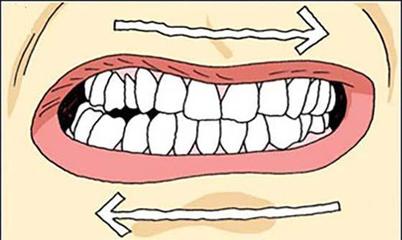
You wake up in the morning, expecting to feel rested. Instead, you’re greeted by a dull, aching pain in your temples, a tightness in your cheeks, or a soreness in your jaw that makes it uncomfortable to chew your breakfast. There’s no toothache, no recent dental work to blame. The culprit is silent, destructive, and happens while you’re completely unaware. You’ve been grinding your teeth.
This condition, known as bruxism, is often dismissed as a bad habit. But for adults, especially those in their middle and later years, it’s rarely just that. Waking with sore jaws? Your teeth are grinding from hidden… stress, and your body is working out the tensions of the day while you sleep.
Think of it as your body’s pressure valve. When you’re awake, you can manage stress with a deep breath, a walk, or a conversation. But when you’re asleep, the conscious mind checks out, and the subconscious takes over. The worries you suppressed, the frustrations you bottled up, the constant low-grade anxiety about finances, health, or family—they don’t disappear. They manifest physically. And for many, the jaw is the stage where this internal drama plays out.
The Mechanics of Midnight Stress
Your jaw is one of the most powerful muscle groups in your body, designed for chewing. When you clench or grind, you’re subjecting your teeth to immense, unnatural force—hundreds of pounds of pressure. This does more than just make your jaw sore.
- The Domino Effect: That tension doesn’t stay in your jaw. It radiates upward, causing tension headaches that feel like a tight band around your head. It can refer pain to your neck and shoulders, creating a cycle of musculoskeletal pain that starts the moment you wake up.
- The Silent Damage: Over time, this grinding wears down the enamel on your teeth, making them shorter, more sensitive, and more susceptible to cracks and chips. It can damage dental work like crowns and fillings, and even change the alignment of your bite.
Beyond Stress: Other Hidden Triggers
While stress is the prime suspect, other factors common in midlife can contribute to the problem:
- Sleep Apnea: There is a powerful and often overlooked link between bruxism and Obstructive Sleep Apnea (OSA). When your airway becomes blocked during sleep, your brain, in a desperate attempt to reopen it, may trigger a grinding or clenching motion to jolt the jaw forward. If you grind and also snore loudly or wake up gasping, this connection is crucial to explore.
- Medications: Certain antidepressants and anti-anxiety medications list bruxism as a potential side effect, as they can affect neurotransmitter levels in the brain.
- The “Malocclusion” Mismatch: Sometimes, the problem is a simple mechanical one—your teeth don’t fit together quite right (a malocclusion), and your jaw is constantly trying to find a comfortable resting position, leading to grinding.
Your Action Plan: From Sore Jaw to Sound Sleep
Ignoring bruxism is like ignoring a check-engine light in your car. The problem will only get worse and more expensive to fix.
- Start with Your Dentist: This is your first stop. Your dentist can see the tell-tale signs of grinding—flattened teeth, worn enamel, and specific wear patterns. They are your primary ally in managing the physical damage.
- The Gold Standard: A Night Guard. Don’t buy a cheap, boil-and-bite guard from the pharmacy. A custom-fitted night guard from your dentist is a game-changer. It doesn’t stop the grinding, but it creates a protective barrier between your teeth, preventing damage and, for many, significantly reducing muscle pain and headaches by allowing the jaw muscles to relax.
- Become a Stress Detective: The guard protects your teeth, but to stop the grinding, you must address the source. Be honest with yourself about your stress levels.
- Wind-Down Routine: Create a buffer zone before bed. No work emails, no stressful news. Try reading, gentle stretching, or meditation.
- Jaw Relaxation: Throughout the day, practice keeping your teeth slightly apart, lips closed, and tongue resting on the roof of your mouth. This is the jaw’s natural resting position and counteracts the clenching habit.
- Consider a Sleep Study: If your dentist suspects sleep apnea, a sleep study can be life-changing. Treating apnea with a CPAP machine or other therapy can often resolve the grinding entirely.
Waking up with a sore jaw is your body’s morning memo, informing you that the pressures of your waking life are being literally gritted out in the night. It’s a physical symptom of a psychological burden. By getting a night guard to protect your smile and actively working to manage your stress, you’re doing more than saving your teeth. You’re giving yourself the gift of truly restorative sleep and waking up ready to face the day—pain-free.